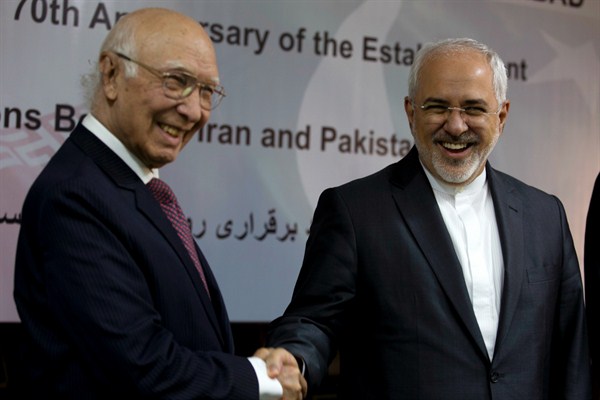In mid-March, Iranian Foreign Minister Mohammad Javad Zarif traveled to Islamabad for a three-day visit, heading a 30-member Iranian delegation. During talks with Pakistani Prime Minister Shahid Khaqan Abbasi, Zarif pledged to increase bilateral trade between Iran and Pakistan from around $1.16 billion today to $5 billion by 2021. They also discussed other areas of cooperation. In an email interview, Payam Mohseni, the director of the Iran Project at the Harvard Kennedy School’s Belfer Center for Science and International Affairs, discusses how Iran and Pakistan’s mutual desire for a deeper relationship must contend with regional rivalries.
WPR: What is the state of Iran’s ties with Pakistan today, and what is driving Iran’s desire to improve them?
Payam Mohseni: Iran generally has cordial diplomatic relations with Pakistan. While bilateral trade between the two is modest, both countries have expressed a desire to boost trade over the next few years. Iran exports electricity to Pakistan, and has also had plans for a major gas pipeline to Pakistan and India, known as the “Peace Pipeline.” But the pipeline has stalled for various reasons, including changes to market conditions since it was first proposed in the 1990s.

